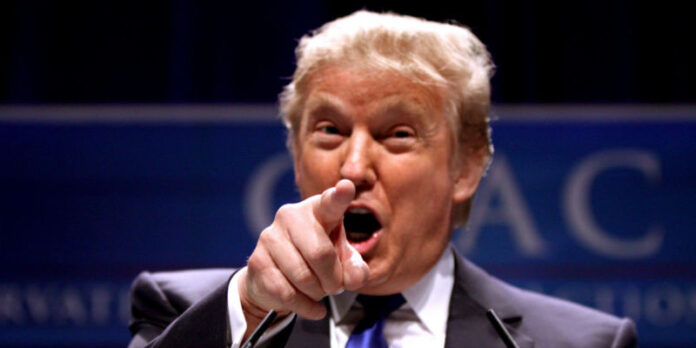President Donald Trump said during a Rose Garden event at the White House on Friday that the US will start revoking Hong Kong’s favored trade status.
According to Nikkei Asian Review, President Trump’s decision was in response to a controversial new security law passed by mainland China that would contain political protests in the former Britain colony.
China officially broadened its power to bar political unrest in Hong Kong with a nearly unanimous legislature to suppress subversion, secession, terrorism and seemingly any acts that might threaten national security in the semiautonomous city, according to NY Times.
Coining mainland China’s new security practices to be a “violation of Beijing’s treaty obligations,” Mr. Trump criticized Beijing to have rebuked the one country two systems arrangement for Hong Kong’s autonomy that was promised to last for 50 years and still had “27 years to go.”
This was in reference to the 1984 China-UK declaration that paved the way for Hong Kong’s slow and gradual return to China from its previous colonial power, Britain.
Reuters reported Trump used some of his toughest rhetoric yet against China. “The world is now suffering as a result of the malfeasance of the Chinese government,” Mr Trump said.
“My announcement today will affect the full range of agreements we have with Hong Kong,” the president declared.
Trump went on to say, “We will take action to revoke Hong Kong’s preferential treatment as a separate customs and travel territory from the rest of China.” He continued emphasizing that the United States would also impose sanctions on individuals allegedly “smothering – absolutely smothering – Hong Kong’s freedom.”
The NY Times reported Washington’s actions against China will begin with the President stripping away Hong Kong’s privileges with the US, including an extradition treaty and commercial relations, with few exceptions. Mr. Trump stressed that Hong Kong would now also be subject to export controls that prevent China from gaining access to certain types of advanced technology, but did not specify whether the tariffs that apply to imports from the mainland will be expanded to Hong Kong.
The President added that Chinese nationals with ties to the People’s Liberation Army will be limited from obtaining student and work-exchange visas.
A day before Trump’s proclamation, sources that asked to stay anonymous, including a current US official, told Reuters that Washington’s aggressive retaliation against China could potentially affect 3,000 to 5,000 Chinese graduate students.
Trump also announced that the US will terminate its relationship with the World Health Organization for supposedly being under “total control” of China.
According to CNBC, the President accused the organization to have failed “the requested and greatly needed reforms” and blamed the global health group for a lack of “transparency.”
Daniel Russel, a former US assistant secretary of state for East Asian and Pacific Affairs, believes Trump’s actions will likely make Chinese leaders “feel like they have more cover for this than they would have had otherwise.” Now a Vice President for International Security and Diplomacy at the Asia Society Policy Institute, Russel warned Nikkei Asian Review, “Beijing clearly has calculated that the collateral damage to their interests from a U.S. retaliatory move was going to be manageable. It’s very concerning the Chinese government is no longer worried about what Washington thinks of its actions.”
Exact details of the actions President Trump is taking have not been released.
AsAmNews has Asian America in its heart. We’re an all-volunteer effort of dedicated staff and interns. Check out our new Instagram account. Go to our Twitter feed and Facebook page for more content. Please consider interning, joining our staff, or submitting a story.

